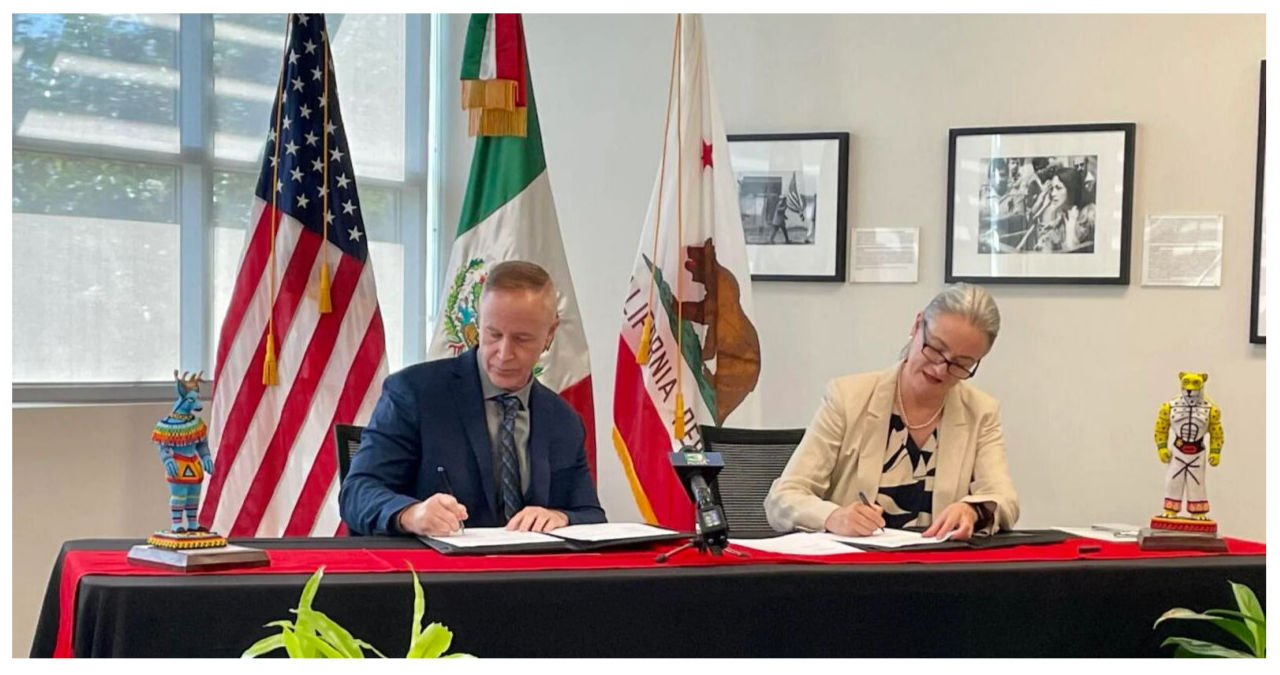California’s unemployment insurance fund is facing a dire situation as it grapples with being “structurally insolvent.” This financial crisis has been exacerbated by the staggering $55 billion in fraud and overpayment that occurred during the COVID-19 pandemic. As a result, the state now finds itself burdened with a significant $21 billion unemployment benefits loan from the federal government, which it is currently unable to repay.
The state is currently requesting loan forgiveness from the Acting United States Secretary of Labor, who previously served as California’s Secretary of Labor during the COVID-19 period. This individual was responsible for overseeing the fraudulent payments made by the state, which amounted to nearly $1 billion and included felons in prison submitting fraudulent paperwork. While this is happening, California Democrats have put forth a proposal to increase unemployment insurance taxes fivefold and nearly double unemployment benefits.
In 2020, California took out a loan of $17.8 billion to sustain payments from its unemployment insurance fund. This amount is expected to increase to $20.8 billion by the end of 2024 due to insufficient payments. The number of unemployed individuals in California is projected to rise from 804,000 in 2022 to 930,000 by 2025, resulting in an increase in benefit payments from $5 billion in 2022 to $6.8 billion by 2025, unless there are any legislative changes. Even before the COVID-19 crisis, California’s unemployment insurance fund was already facing solvency issues. However, with $55 billion lost to fraud and overpayments, the state’s non-partisan Legislative Analyst’s Office has declared the program to be “structurally insolvent.”
According to the LAO’s report in January, it was revealed that the UI Trust Fund forecast by the administration indicated a discrepancy of $1.3 billion in 2023, with UI benefit payments surpassing state payroll tax contributions. Furthermore, the report predicts that this imbalance is expected to grow to approximately $1.6 billion annually in both 2024 and 2025. It is noteworthy that such a situation, where benefit payments exceed contributions, has typically occurred during significant economic downturns, such as the recent pandemic and the Great Recession.
If a state’s unemployment insurance fund is in debt to the federal government for two consecutive years, employers are automatically subjected to an increasing tax burden to repay the loan. This tax increase equates to $21 per worker annually, resulting in a total increase of $105 over the baseline level by the fifth year of tax hikes.
The increase of $21 per worker per year translates to an extra $400 million annually in revenue. Despite these rising payments, they are insufficient to cover the outstanding debt owed to the federal government. The fund struggles to meet its current obligations, let alone repay its debt. Consequently, the state is faced with two choices: seeking debt forgiveness from the federal government or implementing unemployment tax hikes beyond the automatic federal increases.
At the end of 2023, the office of Acting U.S. Secretary of Labor Julie Su made an announcement regarding the potential waiving of state repayment to the federal government for ineligible benefits. The California state auditor highlighted that a letter was submitted in February 2024, requesting federal approval from Su, who was responsible for administering California’s $55 billion in ineligible benefits, for debt forgiveness.
If federal forgiveness does not happen, the state is exploring the option of increasing unemployment taxes by five times, from 0.1% to 0.5%. They are also considering raising the weekly maximum benefits from $450 to $700, but this would require a ⅔ vote in each chamber of the legislature for it to pass. However, State Sen. Maria Durazo, D-Los Angeles, who authored SB 1434, has recently canceled the initial hearing for the bill, possibly due to the forthcoming decision letter from the U.S. Department of Labor.



